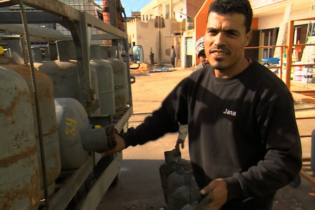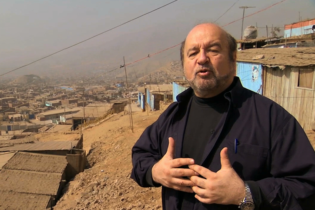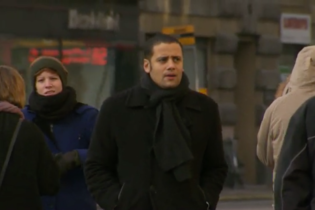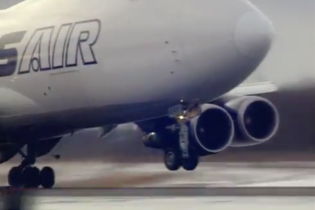Project: The Real Adam Smith
Client: Free to Choose Media for PBS
Category: Televisions, Documentary
Adam Smith: Architect of the modern world
The Real Adam Smith is the latest pair of documentary hours developed, written, and produced by Trillium for Free to Choose Media
Condensing Smith’s voluminous, complex thinking was the most difficult writing challenge. Months were researching, reading, developing a short list of subject matter experts and advisors, and working out a concise description of his life and ideas. He also interviewed all SMEs for their on-camera interviews. As a result, one person’s content segues tightly with another’s throughout the two hours.
Both programs were shot, directed, and edited by Jim Taylor and are hosted by author and economist, Johan Norberg.
Hour One: Morality and Markets
We learn his thinking on empathy and how we distinguish right from wrong. French wine, Scottish whiskey, and freshly-baked scones all illustrate Smith’s economic principles. True wealth is defined. We discover Smith’s thoughts on the government’s role in markets, his distaste for monopolies/crony capitalism in the form of the East India Company, and his thoughts on the American colonies.
Norberg travels through Europe to locales where Smith was born, educated, and spent his life teaching, writing and advocating his revolutionary ideas on markets and human morality.
Hour Two: Ideas That Changed the World
Hour two is all about how Smith’s ideas have led to the first truly widespread human prosperity and large middle classes in history, and still power our economies today.
But can an ethical and honest business still prosper in today’s ruthless world? Will insiders and the rich continue to get richer while the rest of us get poorer? Is the free market no longer free? Are morality and empathy no longer relevant?
Hour two deals with these topics as it traces Smith’s insights regarding the benefits of free trade and the nature of wealth to the present, where they are currently in operation. We discover how Smith’s ideas continue to be relevant and drive the global economy today in a range of settings:
- Aboard the Maersk Mc-Kinney Moller, the largest container ship in the world, Norberg witnesses the incredible scale of world trade first hand as we sail from Spain to Rotterdam, the largest port in Europe.
- In Toulouse, France, we see how the final assembly of a new Airbus A380 illustrates Smith’s insights on the division of labor’s ability to generate wealth.
- At the University of Chicago, Chinese students debate Smith’s ideas to better understand how China became capitalist and in so doing we learn that Smith is valued in China because he is able to join the two main philosophical strands of Chinese thought, Confucianism and Taoism.
- In Washington, DC, Norberg shows what happens when cronyism triumphs over the free market, a condition that troubled Smith. Smith saw the same kind of economically crippling corrupt oligarchy we are fighting here in his era.
- Ethical businesses, like Whole Foods, showcase the morality Smith insisted was critical to thriving markets. Uber and eBay demonstrate that markets can thrive through the organization and “self-policing” of the participants themselves.
- We take a trip to the Library of Congress, see Jefferson’s personal copy of The Wealth of Nations, and learn that the US is not only a product of the Scottish Enlightenment, but in many ways a nation organized around Adam Smith’s principles.
Airbus A380 Segment
This huge network includes miners who find the metal ores, oil rig workers and refiners that provide the petroleum products that go into the plane’s plastics and fuel tanks, metallurgists, designers, engineers, managers, factory workers, ship captains and crews that transport parts and components, the final assembly workers who put it all together in Toulouse, to the vast support network that supports the plane in the air and on the ground. It’s a long way from Smith’s Pin Factory.
Cronyism & Corruption Segment
In his day, Smith saw the same kind of economically crippling corrupt oligarchy we are fighting today. It was the most dangerous threat to prosperity then and is today, as well. In this segment, Johan takes a trip to Washington DC and explores what happens when you “feed the animals” Washington-style.
Many companies prefer to get their profits by legislation rather than selling goods in an open market. They prefer to limit competition. Smith saw this and said it was critical to keep markets level and inclusive, to be pro-market and not pro-one business or another. Smith’s key insight is that competition is not a way of giving power to companies. It’s a way of giving us power over them.
Hong Kong Segment
This brief segment demonstrates how Hong Kong, in a little over forty years, went from being a tiny, overcrowded, poverty-stricken, resource-poor rock to one of the wealthiest nations on earth by consciously applying Adam Smith’s ideas. It has low corruption, an efficient and independent judiciary, secure individual property rights and respect for the rule of law, and an uncomplicated tax system with low rates.
The results are amazing: within four decades the residents of this spit of overcrowded land achieved a level of income a third higher than that enjoyed by the residents of its former mother country, Great Britain!







